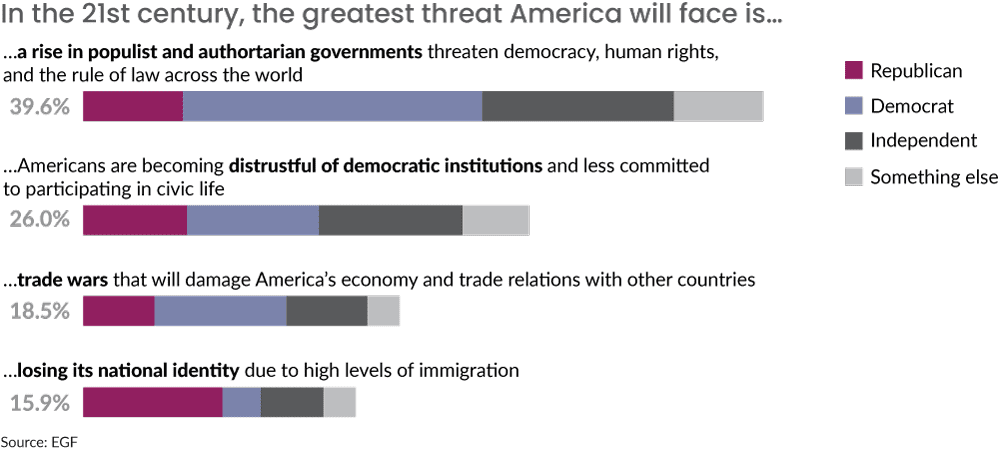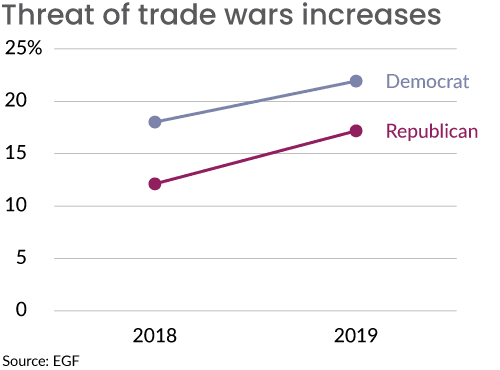Indispensable No More? - How the American Public Sees U.S. Foreign Policy
By Mark Hannah
November 24/25, 2019 "Information Clearing House" - American exceptionalism is the belief that the foreign policy of the United States should be unconstrained by the parochial interests or international rules which govern other countries. Writing in The Atlantic earlier this year, Jake Sullivan defines American exceptionalism as the understanding that, “despite its flaws, America possesses distinctive attributes that can be put to work to advance both the national interest and the larger common interest.” Not only is the United States uniquely equipped to divine a larger common interest, but it has the singular opportunity to pursue and protect it.
Last year we discovered most Americans think the United States is exceptional because of the example it sets than for the active role it takes in world affairs. Americans were more than twice as likely to believe “America is exceptional because of what it represents” than believe “America is exceptional because of what it has done for the world.” Although this remains true this year, the number of people who believe America is an exceptional country because of what it represents declined by 7 percent since last year. Those who believe America is not an exceptional country increased by roughly that amount.

The rise in anti-exceptionalism was most pronounced among younger Americans. It was the top answer choice for respondents under 45 years old. Fully 55 percent of those between 18 and 29 believe the United States is not an exceptional country, as do a plurality of Democrats, Independents, and unaffiliated voters.

This sharp increase in the number of people disavowing American exceptionalism and decrease in people thinking America is exceptional for what it represents takes place amid a backdrop of escalating attacks on democratic institutions by the Trump administration, and an impeachment inquiry which highlights deep partisan divisions within Congress.
Threat Perception
Split Along Partisan Lines
Americans continue to be split along party lines when asked about the greatest threat facing the U.S. in the 21st century. A plurality of Democrats and Independents are concerned with “a rise in populist and authoritarian governments.” Republicans, on the other hand, fear America is “losing its national identity due to high levels of immigration.” Democrats, Republicans, and Independents all ranked as the second most urgent threat: “Americans becoming distrustful of democratic institutions and less committed to participating in civic life.”
The potential threat posed by immigration and a loss of national identity was ranked last among Democrats and ranked first among Republicans. These results continue to reflect a stark contrast in how people with different partisan identities view different threats.


Authoritarianism and immigration aren’t the only issues that stoke anxiety among Americans. The trade war between the U.S. and China has Americans worried as well. A 2019 New York Times poll shows that Americans anticipate negative economic consequences.3 The perceived threat of economic damage caused by trade wars in the survey results increased between 2018 and 2019 among both Democrats and Republicans. It is likely the Trump administration’s ongoing tariff disputes with China have people across the political spectrum feeling pessimistic and frustrated.
|
Are You Tired Of The Lies And Non-Stop Propaganda? |

